Guernsey's Holocaust role 'should be marked'
- Published
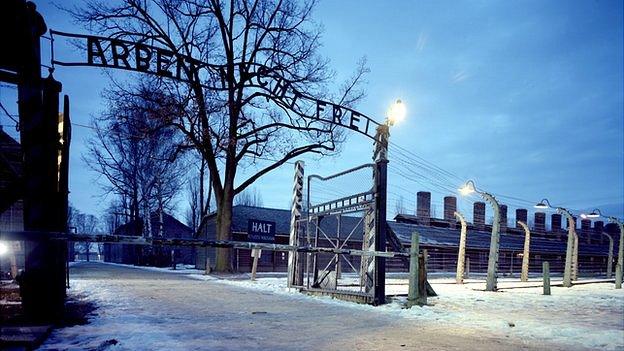
Three of the seven people deported from Guernsey for being Jewish or married to a Jew died at Auschwitz
The role Guernsey's authorities played in three Jewish women being deported and killed in the Holocaust should be marked, says a politician.
Deputy Elis Bebb is organising the island's Holocaust commemorations on 27 January and said Guernsey States' involvement was "often forgotten".
Former Bailiff Sir Geoffrey Rowland said the wartime government was effectively powerless to protest.
"We had two Germans to three Guernsey people - total domination," he said.
Mr Bebb said: "We're the only British soil to have deported people to death camps.
"To mark and to remember and to never forget that dreadful past is something we should have to do to ensure we never repeat those mistakes."
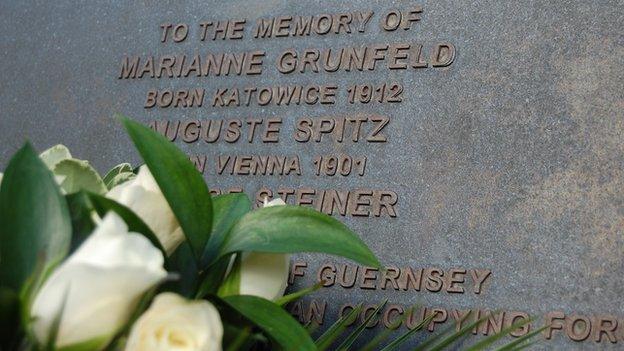
The women's nationality, two were Austrian and one Polish, is seen by some as a reason for their treatment
The small number of Jews in the island has been seen by some historians as a reason for a lack of protest from island authorities to the deportations.
Of the six Jewish residents in the Bailiwick of Guernsey during the occupation three of them - Marianne Grunfeld, Auguste Spitz and Therese Steiner - died in the gas chambers at Auschwitz.
They had been deported to St Malo on 21 April 1942 and were among those rounded up by the Nazis and sent to the concentration camp in July.
Elda Brouard and Elisabet Duquemin, along with her 18-month-old daughter and non-Jewish husband, were sent to detention camps in France and Germany in February 1943 with all of them ending up in Biberach, Germany, and surviving the war.
'Your own doorstep'
Annie Wranowsky, who lived in Sark, denied she was a Jew despite what her German passport said and was on the list of those due to be deported in February 1943, but was excused for unknown reasons.
Sir Geoffrey said: "To think only of the Guernsey aspect is correct in one sense, that it highlights that things can happen on your own doorstep.
"On the other hand you do want to think about genocide in general and take the international view."
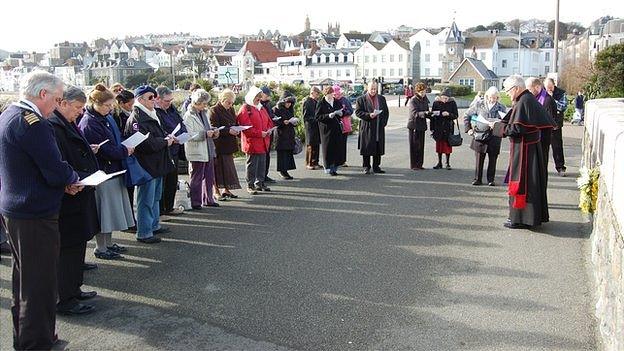
An annual service has been held on 27 January since 2005, with crowds of up to 20 people
Mr Bebb said: "We talk of the liberation of Guernsey, we talk of the history of the Nazi occupation, but this particular part... doesn't enter into that conversation.
"Few people would know today that anti-Jewish measures were passed readily and willing by the States."
Nine orders relating to Jewish residents or those deemed to be Jews were approved by the island's States, including limiting the jobs they could hold, introducing a register, forcing the wearing of a yellow Star of David, controls on Jewish-owned businesses.
Dr Louise Willmot, co-author of Protest, Defiance and Resistance in the Channel Islands, said: "It is fair to say the Guernsey authorities did not know what the fate [of the three women] would be when they were sent to Europe.
"They were deported in April 1942 and the first round ups of Jews in western Europe happened in July and the women were rounded up in France and sent to Auschwitz.
'Unprecedented horror'
"It is very controversial, it is true to say there was very little direct opposition to the orders against the Jews... there was a brief protest by Sir Abraham Laine, the jurat, in 1940 against the registration order."
She said historians differed in opinion with some suggesting the lack of protest was due to anti-Semitism or the small numbers of Jews in the island, while others believe it was due to the lack of influence or status of the individuals affected.
Sir Geoffrey described the island's link to the "unprecedented horror" of the Holocaust as "a stain on our statute book".
However, he questioned if protest would have stopped the deportations.
"In breach of international law [the German authorities] were soon to deport 1,000 islanders to Biberach and Laufen, they weren't taking any note of law," he said.
"It can be very misleading if it's not seen in the right context. You need all of the facts to come out and people can make their own decisions."
- Published29 December 2014
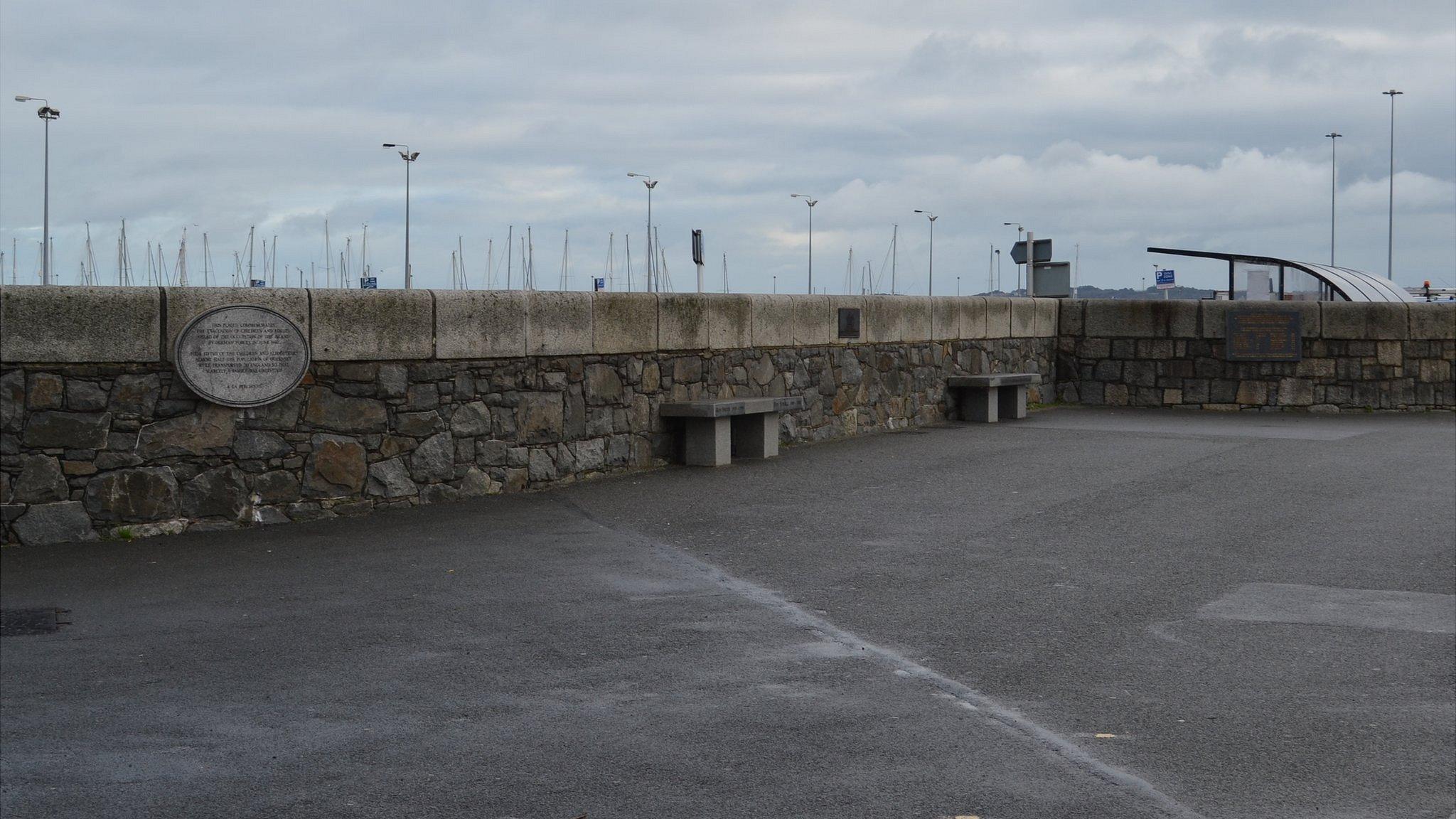
- Published24 December 2014
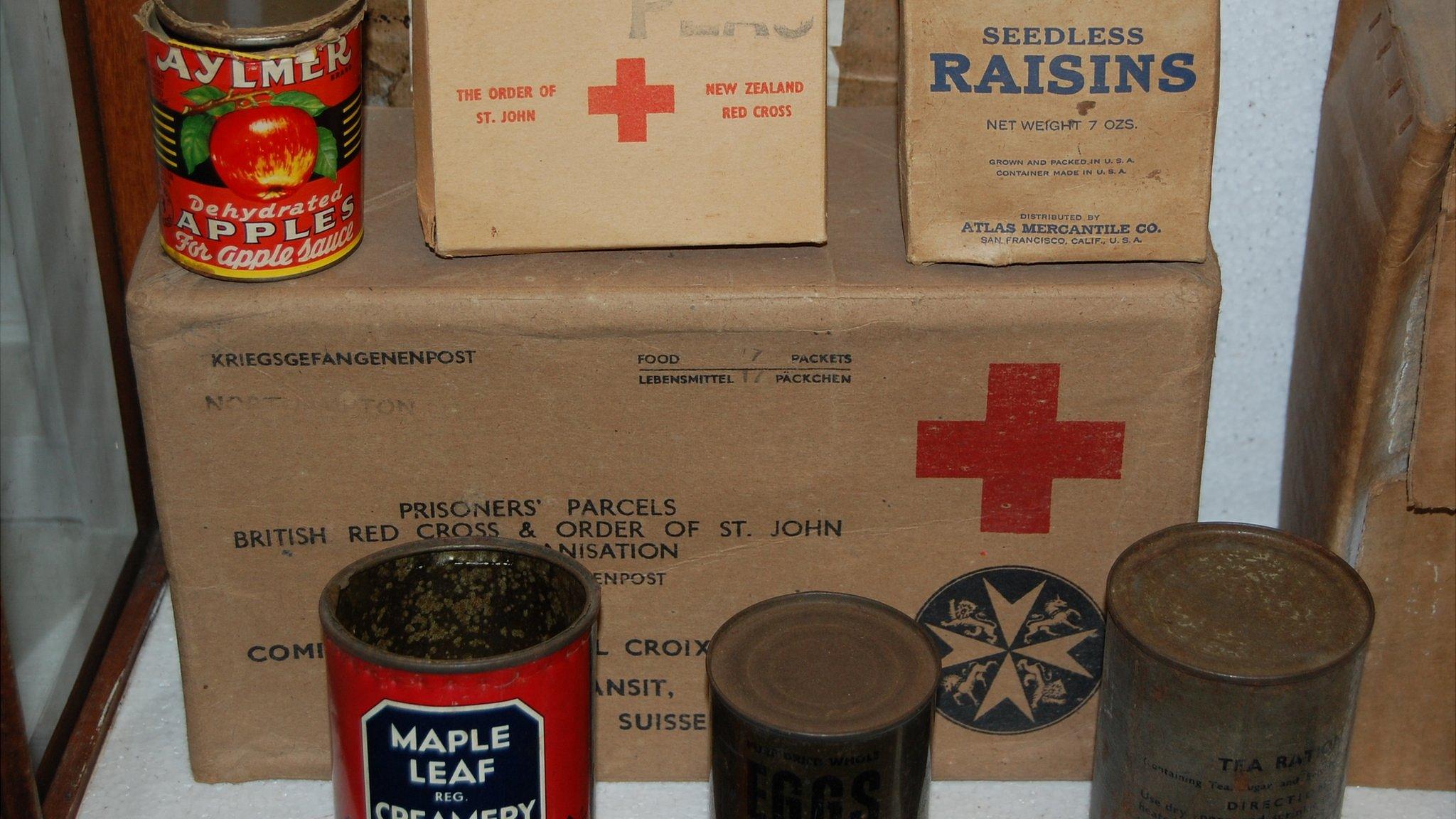
- Published3 October 2014
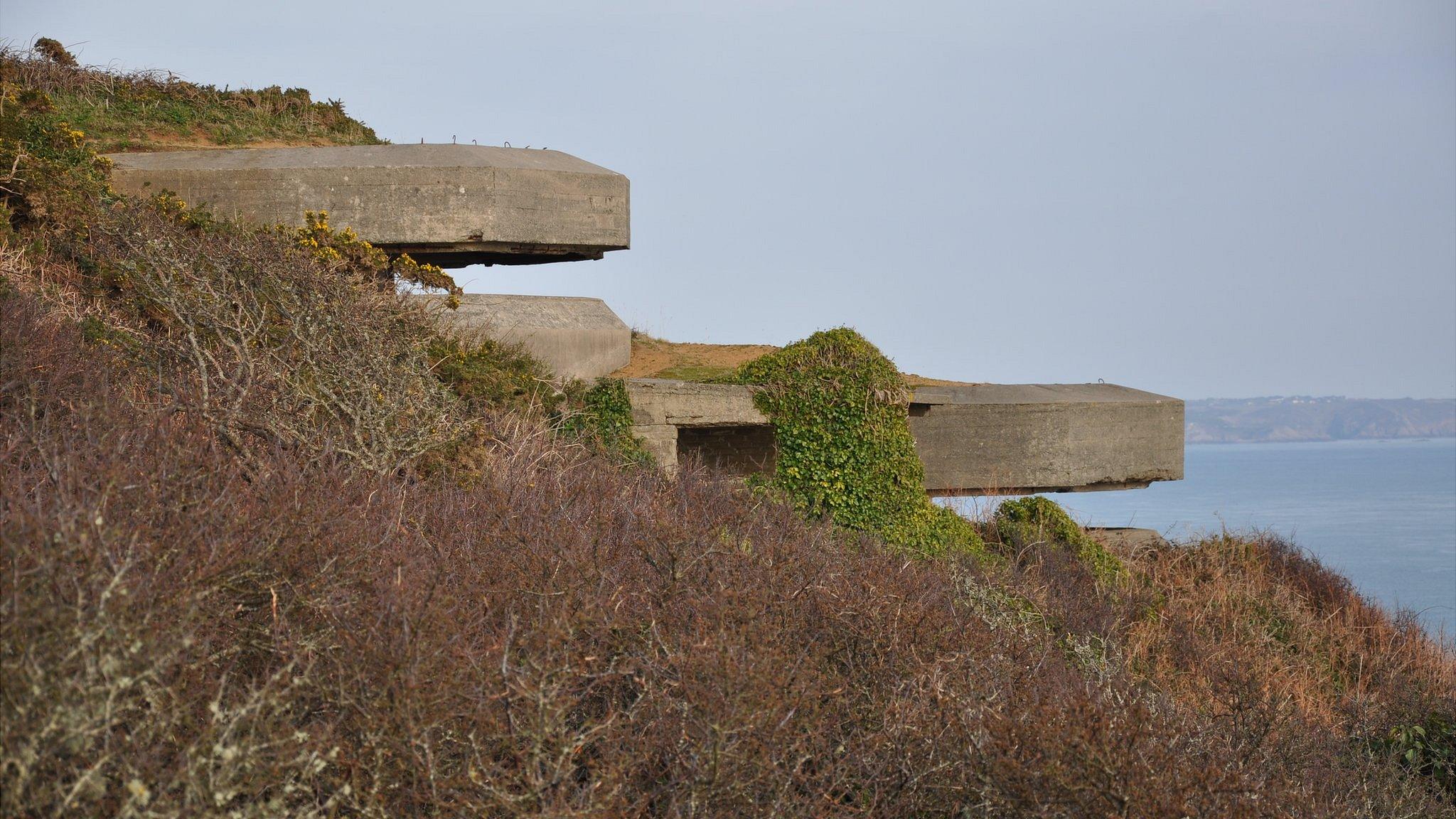
- Published20 August 2013

- Published15 August 2013
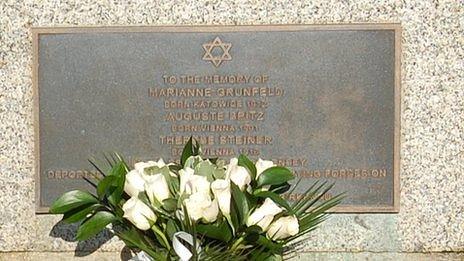
- Published11 May 2014
